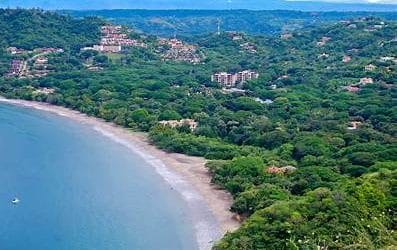Living by the sea in Costa Rica is pure magic—adventures before breakfast, culture in every plaza, entertainment from sunset drum circles to beach bars, wildlife gliding past your balcony, and food so fresh your fridge feels redundant. It’s also a splendid place to own real estate or run a business—until the salty air sets its sights on your fans, fridges, bikes and laptops. This is your daily peace treaty with corrosion, so you can enjoy the coast without your kit quietly turning to brown confetti.
Why does everything rust faster at the beach?
It’s because salt accelerates corrosion by pulling moisture from the air and making a conductive, slightly caustic film on metal surfaces.
What’s happening: Sea spray leaves micro-salt crystals. Humidity liquefies them, forming an electrolyte that speeds up the reaction between metal and oxygen. Result: rust on steel, pitting on aluminium, and crusty electronics.
What daily habits actually work?
A consistent rinse-dry-protect routine beats occasional heroics every time.
- Freshwater rinse: Remove salt before it bonds—quick splash, then dry thoroughly.
- Microfibre wipe-down: Soft cloths lift salty film without scratching.
- Dry time: Airflow is your friend; a fan or shaded breeze works wonders.
- Protective coat: Light silicone or corrosion-inhibitor spray forms a barrier.
How do I protect household fans?
Keep blades, grills and bearings clean, dry and lightly shielded.
- Weekly wipe: Unplug, remove the grill, and use a damp microfibre cloth to lift salt dust; dry immediately to stop flash rust.
- Bearing love: A drop of light machine oil on the spindle once a month reduces friction and seals out moisture.
- Anti-corrosion spritz: A light silicone spray on screws and exposed metal stops the first brown specks from ever appearing.
- Smart storage: During long trips, bag the fan with a couple of silica gel packs to keep the microclimate dry.
How do I stop my fridge hardware blooming orange?
Keep seals clean, hardware coated, and airflow around the unit.
- Gasket care: Wipe door seals with mild soapy water; salt crystals here attract moisture and mould.
- Screw defence: Dab petroleum jelly or dielectric grease on hinges and handle screws to block salty air.
- Give it space: Pull the fridge 5–8 cm from the wall for airflow; stagnant air equals condensation equals rust.
- Tray check: Empty and dry the drip tray—salt + standing water = corrosion party.
What’s the beach-bike routine that actually sticks?
Rinse, dry, lube, repeat—religiously.
- Post-ride rinse: Gentle freshwater, no pressure washer (it forces salt into bearings).
- Dry and shake-out: Towel dry and a few gentle bounces to shed hidden droplets.
- Chain love: Salt-resistant wet lube for the rainy season; wipe excess to avoid grit paste.
- Frame film: A thin bike-safe protectant or carnauba wax on frame and rims blunts salt’s bite.
- Fastener swap: Where possible, replace cheap bolts with stainless or titanium to prevent ugly blooms.
How do I keep my laptop from becoming a crunchy cracker?
Control humidity, block ports, and wipe often.
- Indoor rule: Balcony writing is romantic until your keyboard tastes like the Pacific; work indoors with a fan or dehumidifier.
- Silica packs: Keep the laptop in a zip case with 2–3 silica sachets; recharge them in the sun/oven (low heat) monthly.
- Port caps: Rubber covers keep out salted air and sand; remove weekly for a gentle compressed-air puff (short bursts).
- Microfibre ritual: Light daily wipe to remove salty film; never spray cleaner directly—moisten the cloth instead.
What smart storage keeps rust at bay?
Dry boxes, breathable order, and sacrificial helpers.
- Airtight bins: Store tools and spare parts in gasketed boxes with silica or reusable desiccant canisters.
- Cedar or charcoal: Natural moisture buffers reduce the peaks of humidity swings in wardrobes and gear cupboards.
- Sacrificial zinc tabs: In tool boxes or boat lockers, zinc anodes preferentially corrode and protect other metals—replace when spent.
- Dehumidifier: A small unit (10–20L/day) in your gear room keeps everything happier than a sloth at siesta.
What weekly “reset” keeps everything sweet?
A fast circuit of your home beats hours of future scrubbing.
- Salt patrol: Look for first freckles on screws and hinges; touch up with a dab of grease or protectant.
- Laundry rinse: Beach towels and athletic kit get a freshwater pre-rinse to stop salt fog boosting indoor humidity.
- Floor sweep: Sand grinds finishes and traps moisture—keep it moving out.

FAQs
Does WD-40 fix rust?
It displaces water and adds a temporary barrier, but it’s not a permanent rust-proofing—follow with a silicone or specialist inhibitor.
Is stainless steel immune?
No. It stains less but can pit in marine air. Rinse, dry and coat lightly where possible.
Which dehumidifier size do I need?
For a small bedroom/office near the beach, aim for 10–20L/day capacity; larger open spaces may need 25L+.
Can I use vinegar on rust?
For light surface rust, yes—then neutralise with water, dry completely, and protect. Avoid on aluminium or electronics.
Are bike disc brakes OK with protectants?
Keep sprays well away from rotors and pads; overspray causes squeal and lost braking. Shield with cardboard while treating nearby parts.
Parting words
Make peace with the sea by establishing small, unfussy rituals—rinse, dry, protect, store—and you’ll enjoy Costa Rica’s beaches, food, culture, wildlife and nightlife while your gear stays shipshape. Salt may win the very long war, but with a tidy truce, it’ll take several lifetimes to notice.







